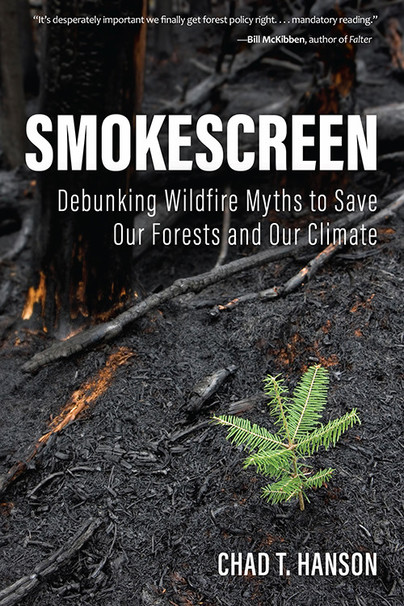
Format: Hardback
Pages: 280
ISBN: 9780813181073
Pub Date: May 2021
Imprint: University Press of Kentucky
Illustrations: 49 b&w photos
Price:
£25.00
This book will be reprinted and your order will be released in due course.
Description:
Wildfires are a naturally occurring phenomenon that create opportunity for rejuvenation of our national forests. Given the number of natural fires that the public is made aware of today, it may be easy to feel disconcerted. However, popular misinformation about wildfires means that much of this anxiety is unnecessary and misdirected. Wildfires offer up a wealth of opportunity for forest and grassland renewal and maintenance, while the negative stigma attached to the occurrence has led to unneeded environmental damage and human endangerment in efforts to prevent them. In Smokescreen: Debunking Wildfire Myths to Save Our Forests and Our Climate, author Chad Hanson aims to bridge the disconnect between widespread common beliefs and current science regarding wildland fire, forest management, and climate change. In stark contrast to the fear-driven catastrophic wildfire narrative, the current and emerging science on fire in forests is positive and hopeful. In truth, contemporary research has demonstrated that forests in the US, North America, and around the world currently have a significant deficit of fire. Meanwhile these forest fires, including the largest ones, are creating extraordinarily important and rich wildlife habitat, if they are not subjected to post-fire logging. In California, for example, the threatened black-back woodpeckers which adapted by millions of years of evolution to live in burned-out forests, have found respite in the forests that were subject to the 2016-17 "Rim Fire." This is especially true in the patches where fire burns most intensely, and kills most or all of the trees, creating "complex early seral forest," less technically known as "snag forest habitat." This unique forest environment is comparable to old-growth forest in terms of native biodiversity and wildlife abundance, and the strong weight of current scientific evidence indicates that forests are naturally regenerating in ecologically beneficial ways after such fire, even in the largest high intensity fire patches. Hanson's proposed book is, ultimately, a hopeful one: fire is not destroying the nation's forests. Rather, it has a central role in revitalizing wildlife habitat, and its impact on humanity's growing footprint is manageable when effective planning is put in place. Hanson, with his knowledge of hands-on research and engaging writing style, is well situated to increase the national dialogue around forest fires at a time when it is desperately needed. Smokescreen will connect strongly with an increasingly environmentally conscientious public, ecologists, and land managers both in the public and private sector.

